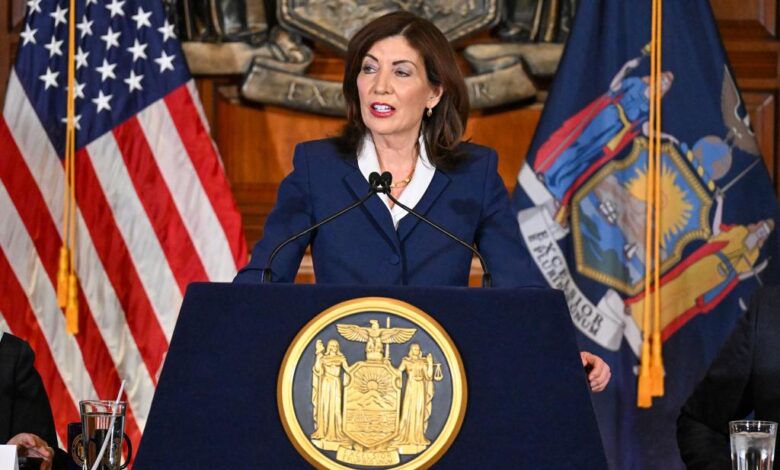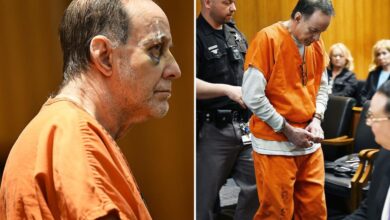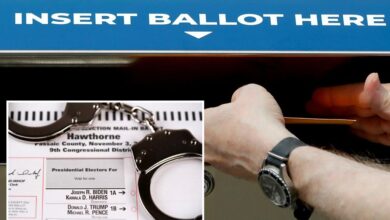Kathy Hochul, lawmakers spent extra month but still came up with a disaster-prone budget

Governor Kathy Hochul and lawmakers finally reached a budget deal after a month-long delay, but the $254 billion plan raises concerns about the state’s financial future. This budget, $15 billion more than last year, lacks provisions for potential cuts in federal aid or a slowdown in tax revenue due to economic shifts. Instead, New York will impose a $1.4 billion-a-year payroll surcharge, adding to the already high tax burden on residents.
Despite Hochul’s promises of an “affordability agenda,” the budget includes tax hikes and one-time refunds for lower-income residents, seen as political ploys rather than genuine relief measures. The deal also sets the stage for significant budget shortfalls in the coming years, with no concrete plan to address potential federal cuts other than returning to impose more taxes in the future.
Critics like Citizens Budget Commission head Andrew Rein warn that the budget fails to address the looming threat of federal cuts and increases spending that the state cannot sustain in the long run. While the budget includes changes to discovery laws and mental health commitments, concerns remain about the impact of these tweaks on the criminal justice system.
The compromise on public masking regulations has also drawn criticism for being too lenient, potentially emboldening individuals who engage in disruptive behavior. Overall, the budget reflects a pattern of increasing spending and taxes without addressing fundamental fiscal challenges, driving more taxpayers to leave the state in search of better financial stability.
In conclusion, the budget deal reached by Governor Hochul and lawmakers may have been delayed, but the lack of long-term fiscal planning raises concerns about New York’s economic future. The focus on short-term fixes and political maneuvering instead of sustainable solutions could have lasting consequences for the state’s residents and financial health.





